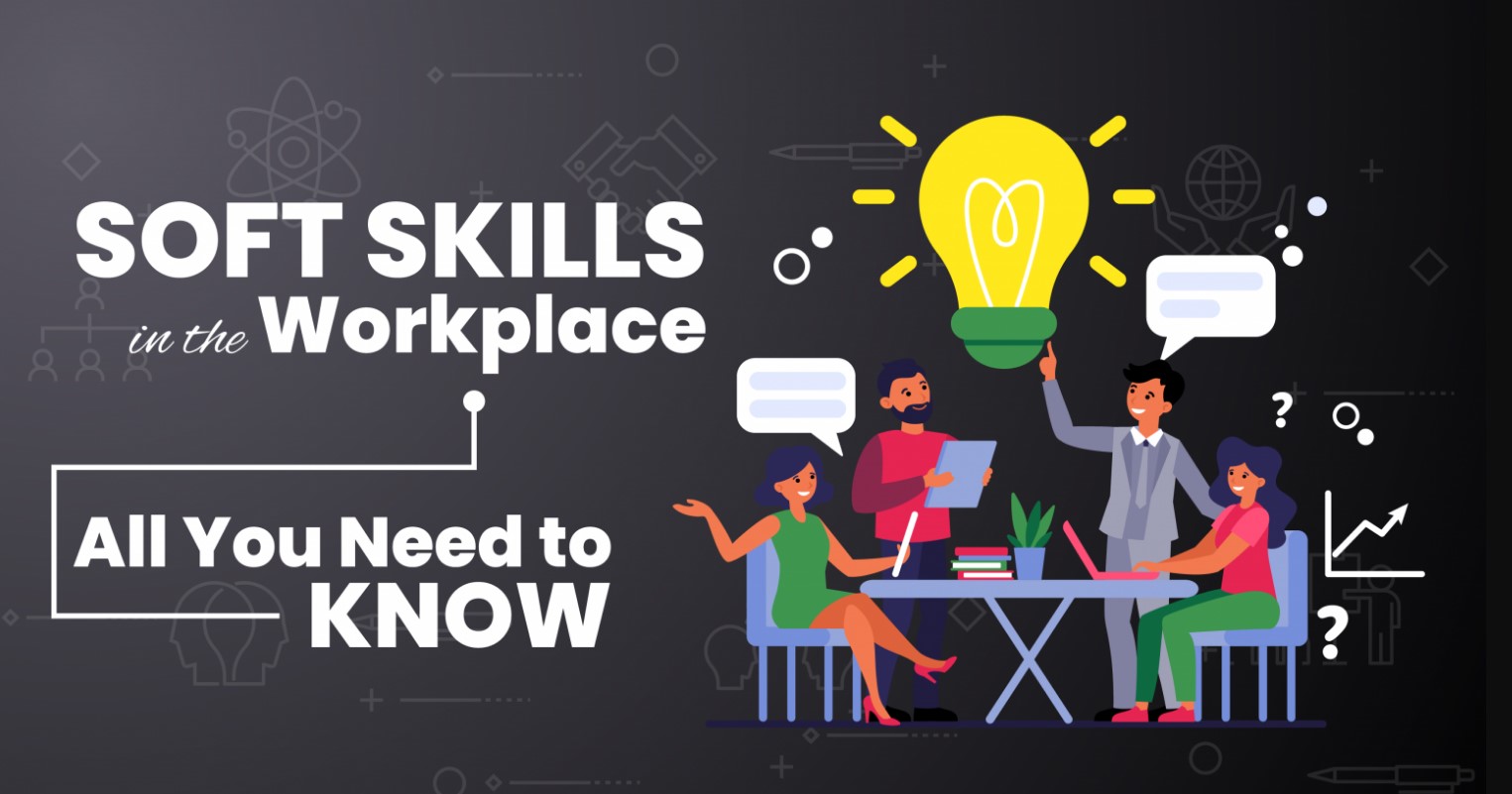In 2025, as technology, talent shortage, and demographic shifts redefine business competition, the urgency to prioritize soft skills in the workplace mustn’t be overstated, following the mantra:
‘Soft is the new hard.’
What are soft skills?
Soft skills are non-technical skills that relate to how you work, and include listening skills, interpersonal skills, time management, communication skills, and empathy, among others. Unlike “hard” skills, soft skills are not about the knowledge you possess but rather the behaviors you display in different situations. Therefore, they speak volumes about how one would interact with colleagues, solve problems, and manage their work.
No wonder in the current rise of automation, soft skills give humans an edge over robots.
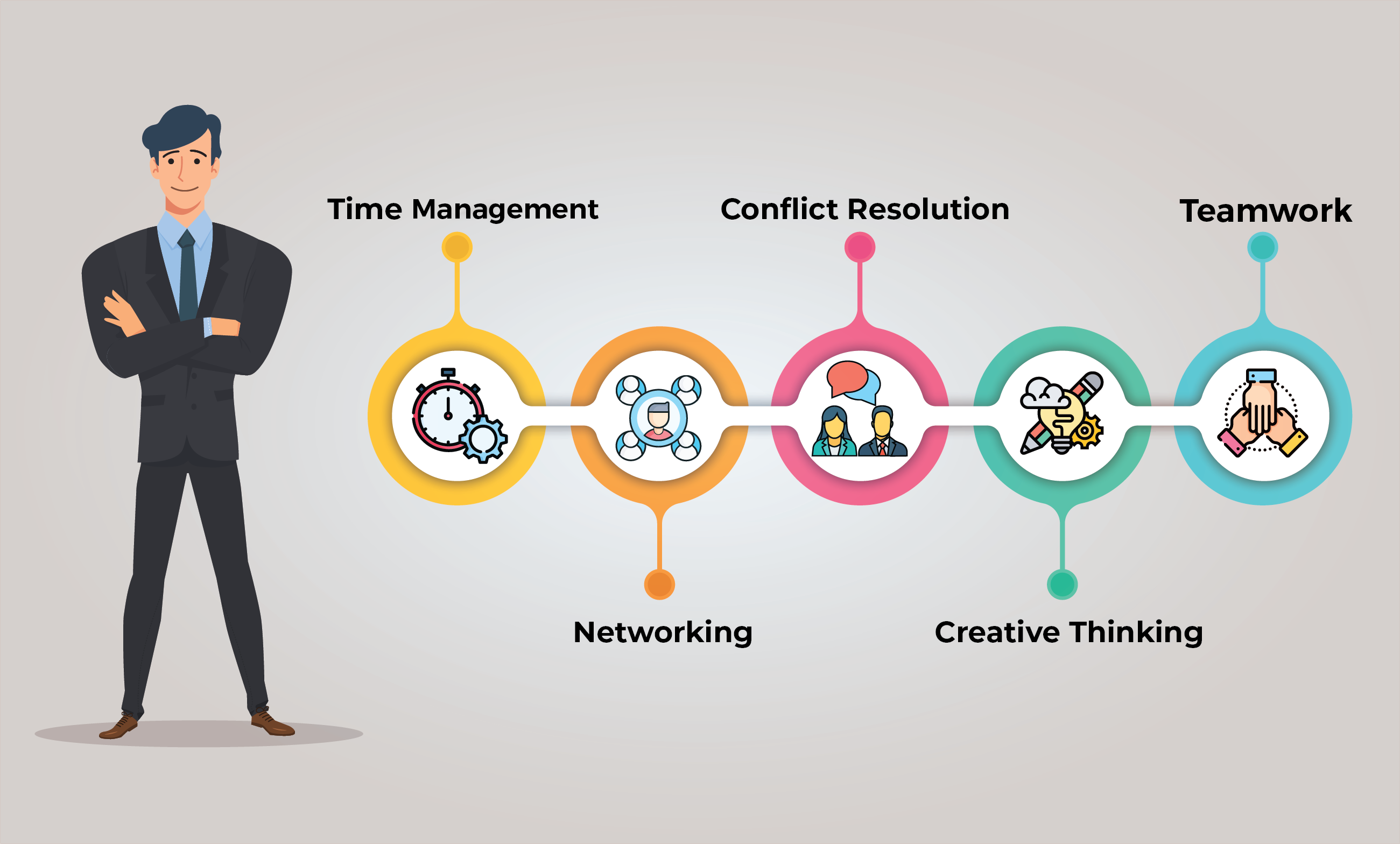
Soft Skills in the Workplace Are in Demand
Hiring professionals are increasingly looking for candidates with soft skills, and there’s a major reason for it. A person may be exceptional when it comes to job-specific skills, but if they cannot perform well under pressure or work within a team it’s quite difficult for them to succeed in the workplace.
In 2020, LinkedIn used data from 660+ million professionals in its network and 20+ million job listings to determine the hard and soft skills most in-demand in 2020 and beyond. And this is what they found:
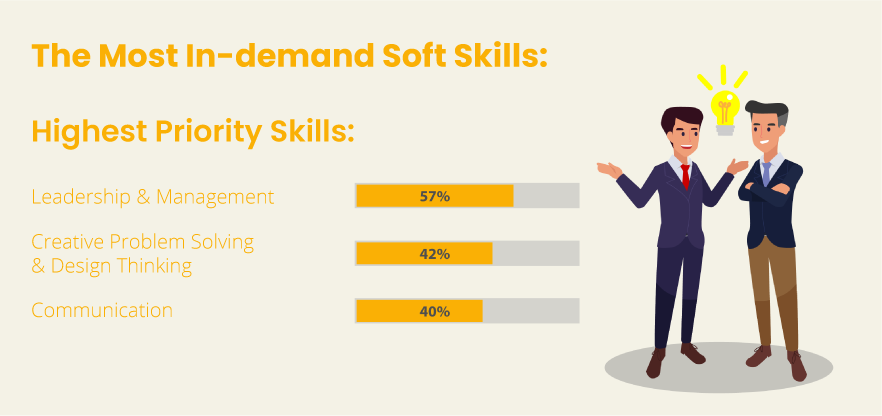
The learning and development realm seems to be largely occupied by managers and leadership teams, but it should be for everyone. The 2020 Workplace Learning Report shows that managers spend 30% more time learning soft skills than the average learner.
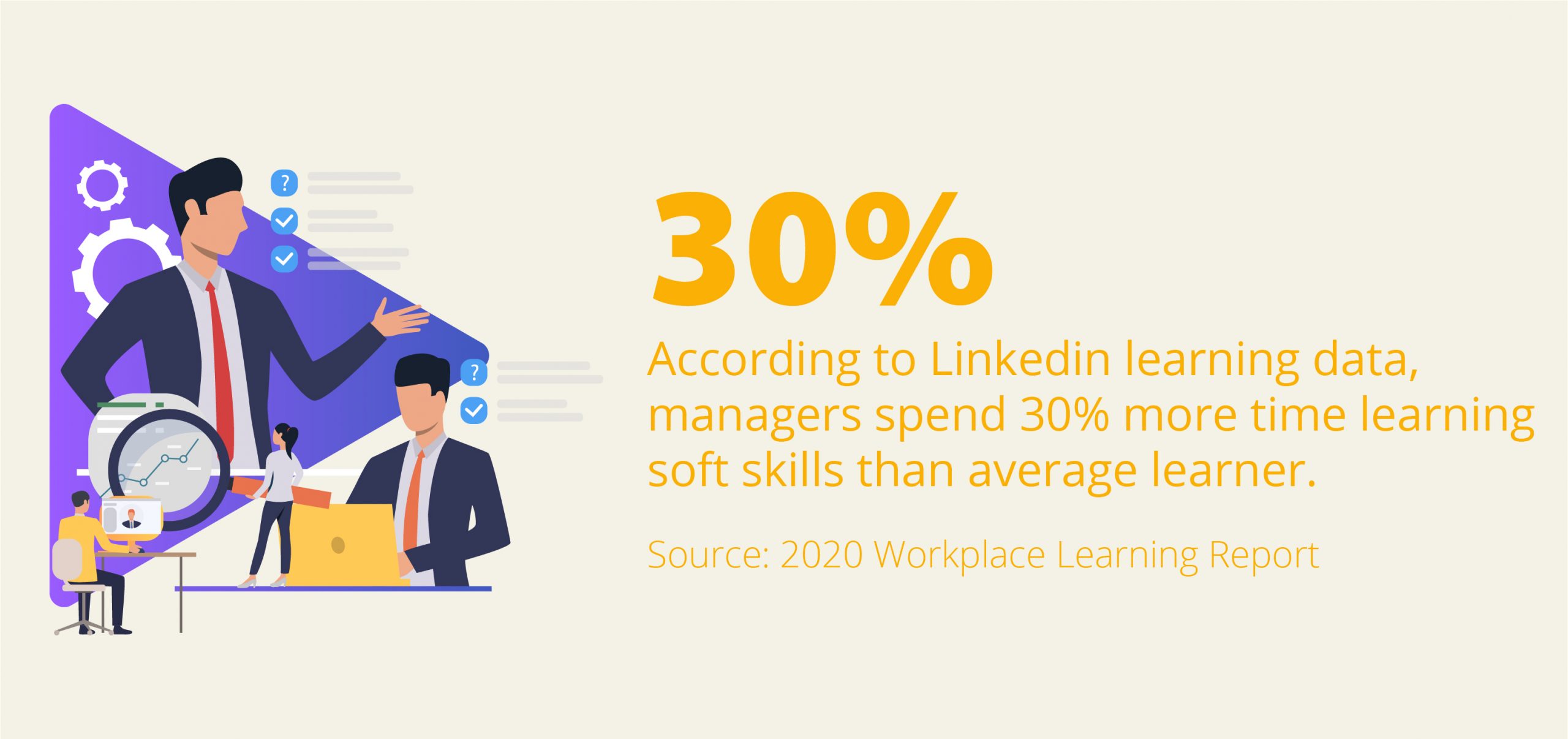
The Growing Importance of Soft Skills in Today’s Workforce
- Google identified eight key skills of successful leaders at the company, stating that even though technical skills are extremely important, these leaders most often display inherently human qualities, like listening and asking questions.
- An interesting study by Deloitte Access Economics, predicts that two-thirds of all jobs in Australia will rely on soft skills by 2030.
- According to a National Association of Colleges and Employers survey, employers declared leadership and the ability to work in a team as the most desirable traits when recruiting recent college graduates, prior to analytical and quantitative skills.
- The Wall Street Journal reports, “Competition has heated up for workers with the right mix of soft skills, which vary by industry and across the pay spectrum—from making small talk with a customer at the checkout counter to coordinating a project across several departments on a tight deadline.”
- A recent study by Burning Glass Technologies found that, on average, one in three skills requested in 25 million U.S. job postings is a “baseline” or soft skill. “Even in the most technical career areas such as information technology, and healthcare, more than a quarter of all skill requirements are for baseline skills.”
- The psychologist Nicholas Humphrey shared insights on social intelligence, asserting that how a person interacts with their environment and the people around them matters far more than their quantitative intelligence.
- In LinkedIn’s Global Talent Trends 2019 report, 92% of talent professionals reported that soft skills are equally or more important to hire for than hard skills.
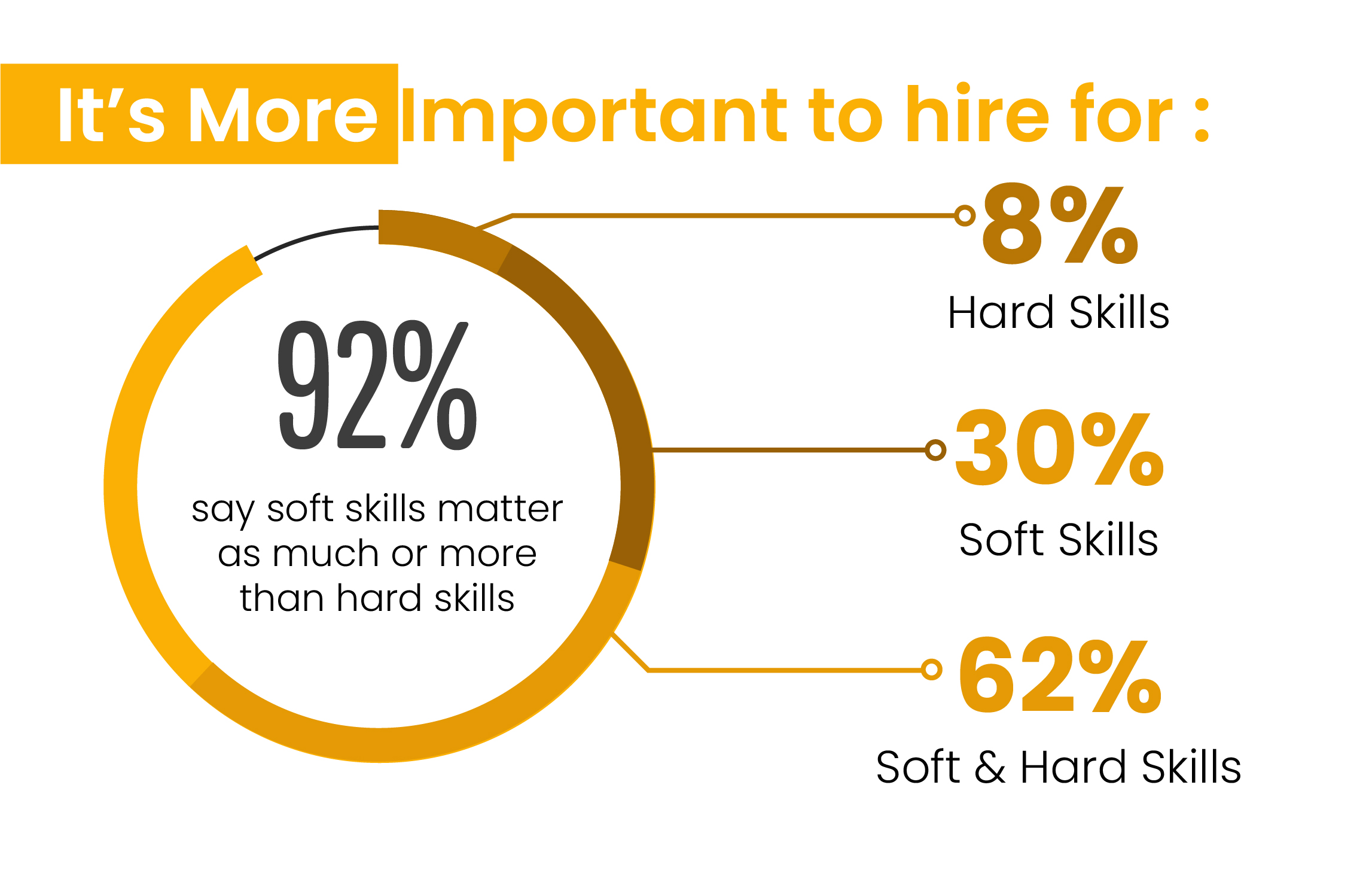
According to the report, 89% of talent acquisition managers said that when a new hire doesn’t work out, it’s because they lack critical soft skills.
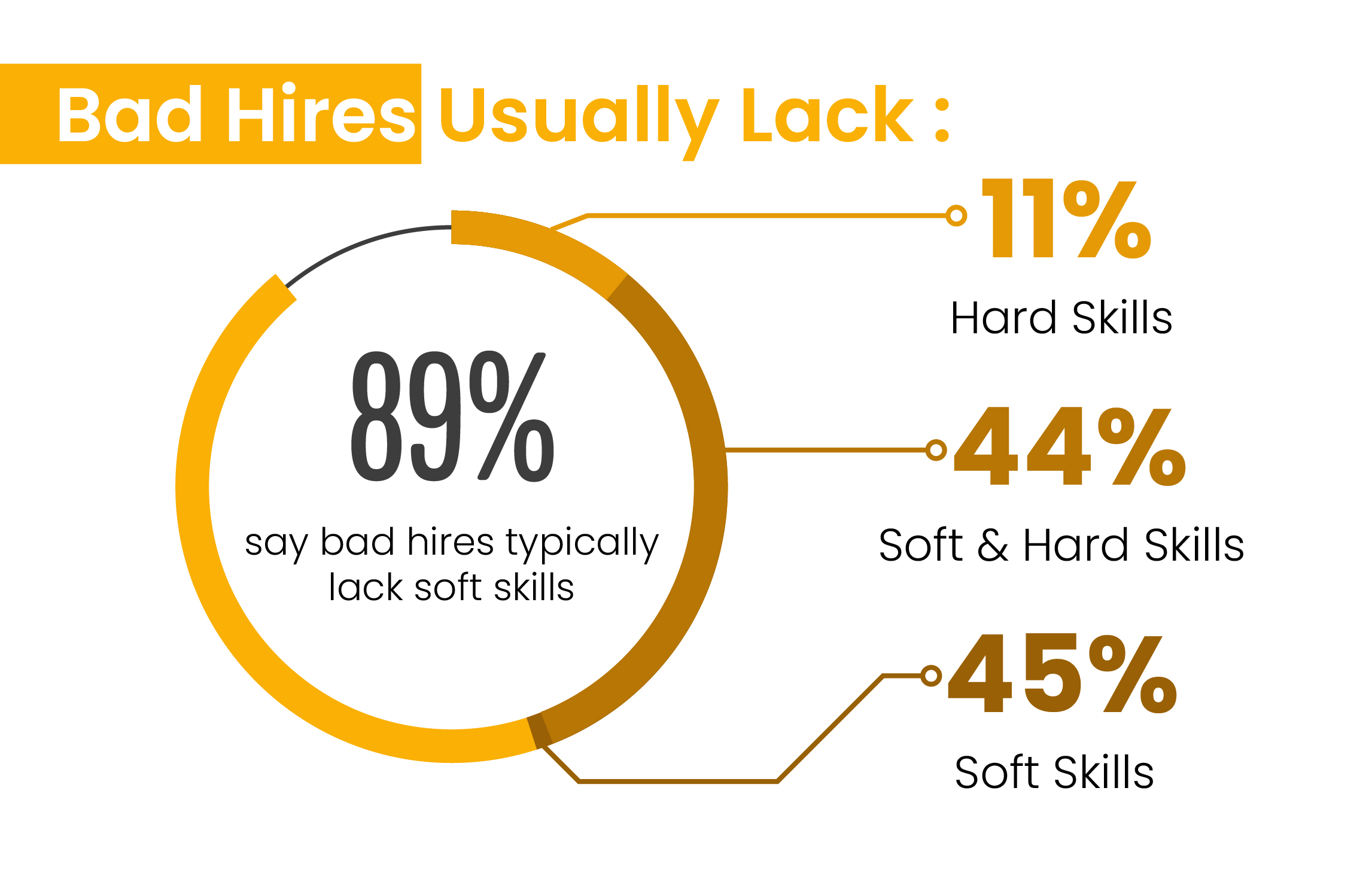
Exploring the Benefits: The Impact of Hiring for Soft Skills
The importance of utilizing soft skills in the workplace cannot be stressed enough, and this applies to the entire workforce, from the entry-level assistants to executive leaders regardless of the industry. Here are a number of benefits businesses reap from hiring employees with interpersonal skills.
- Improved leadership– People with soft-skills, such as empathy, problem-solving and decision-making skills tend to be great leaders. This is important because fifty percent of employees leave their job due to poor managers.
- Increased productivity – Workers with well-honed soft skills tend to perform better and efficiently when it comes to their tasks and responsibilities.
- Improved teamwork – Employees synthesize their varied talents and collaborate well with their co-workers, which strengthens the quality of work.
- Win new clients– Highly-developed presentation skills, strong communication and networking abilities, and etiquette awareness can help you attract new clients and get more work from the existing ones.
How to Assess Soft Skills in Candidates with Gamified Assessments
At The Talent Games, we specialize in using gamified situational judgment tests (SJTs) to assess soft skills that are critical for success in today’s workplace.
Our unique approach allows employers to simulate real-world scenarios, enabling them to evaluate how candidates would handle various job-related challenges. This helps create a more accurate picture of a candidate’s key competencies.
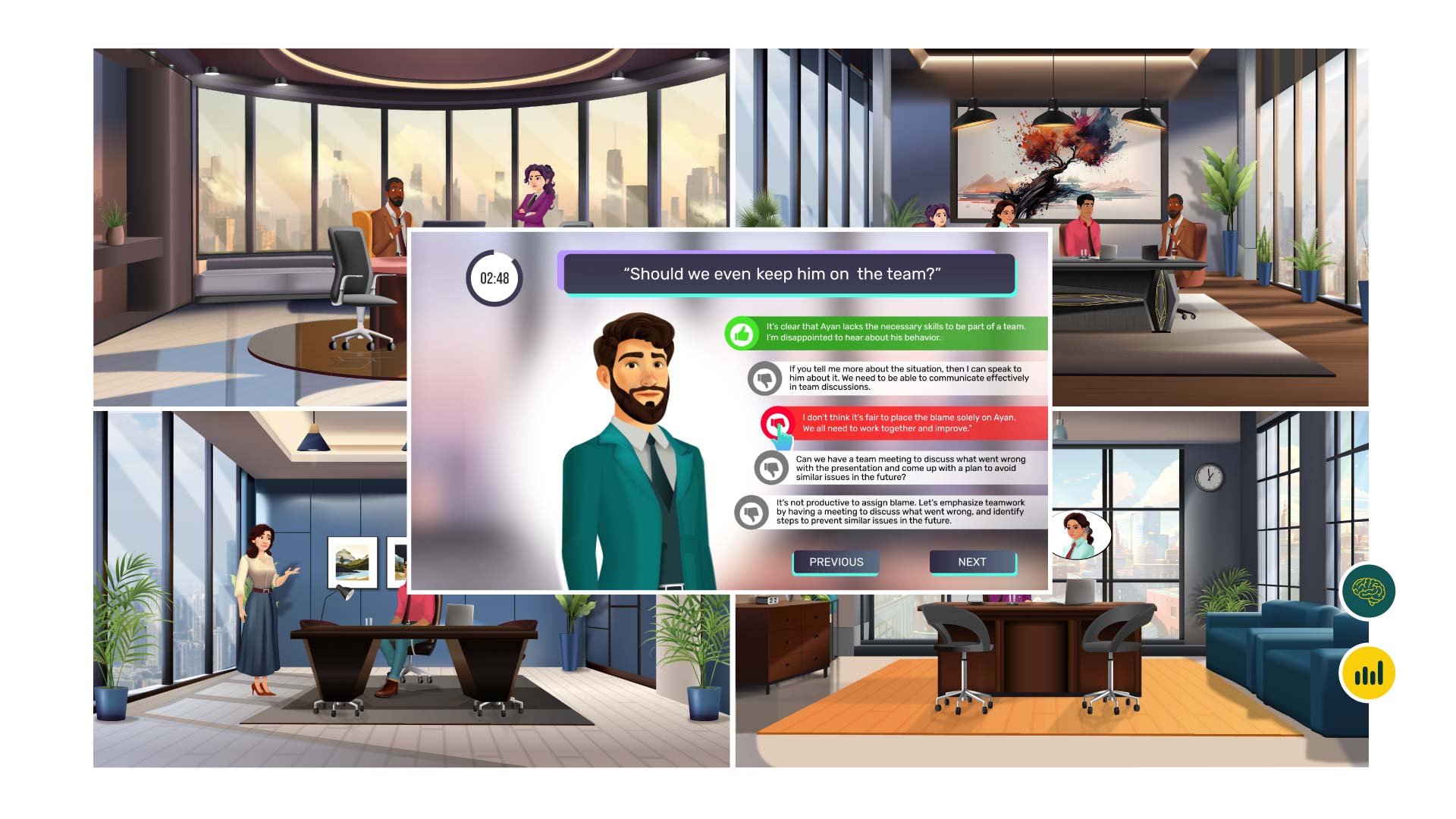
Key Competencies That Modern Workforce Needs
To stay competitive in the ever-evolving work environment, employers need to assess candidates for a variety of soft skills. Here are some of the most important competencies:
- Communication: Ability to clearly express ideas and actively listen.
- Problem-Solving: Identifying and solving challenges efficiently.
- Adaptability: Thriving in changing work environments.
- Teamwork: Collaborating effectively with colleagues.
- Leadership: Motivating and guiding teams toward common goals.
- Emotional Intelligence: Managing emotions and understanding others’ emotions.
These competencies are essential for today’s employees to thrive in a fast-paced, dynamic workforce. That’s the reason many companies like Nestlé employ the an award-winning gamified AI recruitment software to hire candidates for its internship.
Simulating Real-World Scenarios to Test Key Competencies
Our gamified SJTs are designed to replicate real-world job situations, providing a dynamic and engaging way to assess a candidate’s soft skills. These simulations test candidates’ responses to complex scenarios, giving employers valuable insights into their problem-solving, decision-making, and interpersonal skills.
- Example: A candidate may face a situation where they must balance multiple urgent projects. This tests their time management, prioritization, and organizational skills in a real-world context.
- Example: A scenario might present a conflict between team members, evaluating how a candidate handles conflict resolution, teamwork, and communication.
Behavioral Scenarios for Soft Skill Evaluation
With our gamified approach, we can craft behavioral scenarios that directly assess specific competencies like leadership, collaboration, and adaptability. These interactive tests allow candidates to demonstrate their abilities in a natural setting, making it easier for employers to evaluate:
- Communication Style: How candidates express themselves and interact with others in team settings.
- Conflict Resolution: How candidates manage disagreements or tensions with colleagues.
- Decision-Making: How candidates approach tough decisions under pressure.
By assessing how candidates approach these situations, employers gain a clearer understanding of their soft skills and cultural fit. C Factor by The Talent Games is the ultimate solution for you to assess the highly demanded competencies and get the best talent for your organization.
Improving Candidate Experience Through Gamified Soft Skills Assessment
Traditional assessments often fail to accurately capture a candidate’s soft skills or provide a true reflection of their potential. Our gamified SJTs offer a more engaging and stress-free candidate experience, allowing candidates to feel more comfortable and perform at their best.
- Reduced Stress: Gamified assessments create a fun, immersive experience, helping candidates feel less anxious during the hiring process.
- Authentic Performance: Candidates have the opportunity to showcase their soft skills in a realistic, low-pressure environment.
- Better Insights: Employers receive a deeper, more nuanced view of a candidate’s capabilities beyond resumes and interviews.
Why Gamified SJTs Are Ideal for Soft Skill Assessment
Gamified situational judgment tests are an ideal tool for assessing a wide range of soft skills. These assessments provide a more accurate and comprehensive picture of a candidate’s abilities, including:
- Leadership and Initiative: How candidates step up to take charge in challenging situations.
- Collaboration and Teamwork: How well candidates work with others to achieve common goals.
- Problem-Solving and Adaptability: How candidates approach obstacles and adjust to changes in the workplace.
By utilizing gamified assessments as screening tool, employers can identify candidates who possess the key competencies needed to succeed in today’s workplace.
